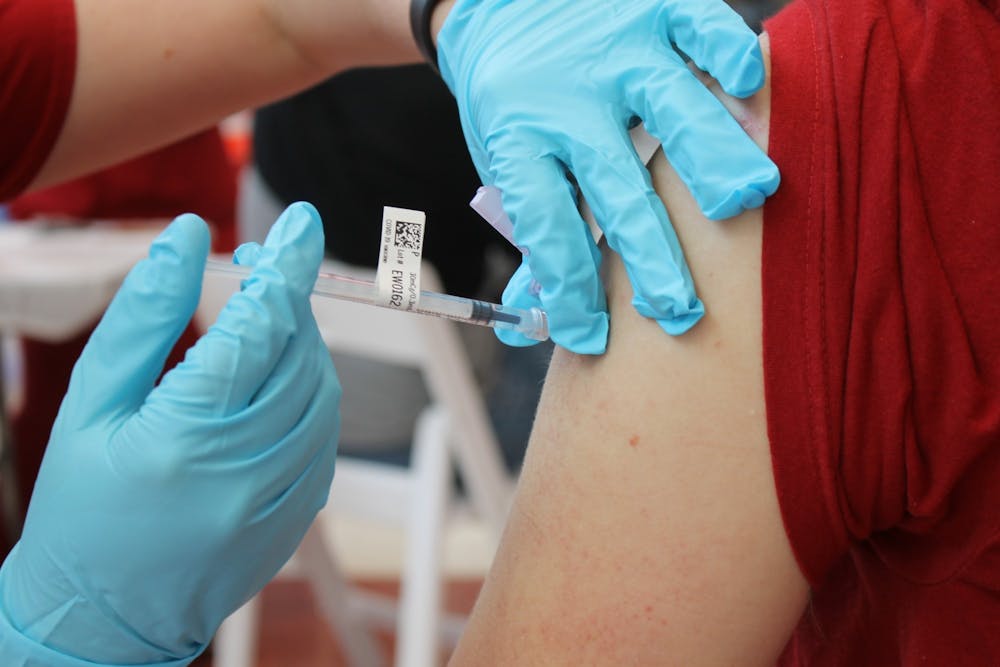COVID-19 booster shots offer higher levels of protection against serious illness, but their effectiveness wanes over time, according to a study published in February by the Centers for Disease Control and Prevention.
The study looked at the number of COVID-19 related visits to hospitals and emergency departments during the Delta and Omicron variant spikes, co-author of the study Shaun Grannis said. It compared the immunization status of those people to measure the effectiveness of COVID-19 vaccines and boosters over time.
“This is called a real-world evidence analysis, where we're using the actual data generated in the course of health care to understand what the effectiveness might be now,” Grannis, who is also vice president for data and analytics at the Regenstrief Institute, said.
The goal of the study was to provide data to help people make their own decisions about whether or not they should get the booster, Grannis said.
“This was one of the first studies to provide evidence to support the claim and support the rationale for getting the booster,” Grannis said.
The study was done by a coalition of 10 sites led by the CDC, Grannis said. IU and the Regenstrief Institute were one of the 10 sites. The study involved monitoring more than 400,000 people, study co-author Brian Dixon said.
The study found during the Omicron period, vaccines after receiving two doses were 71% effective, and after a third dose they were 91% effective.
During the Delta period, the study found vaccine effectiveness against COVID-19 related hospital visits was at 96% for the first two months after receiving a booster vaccine, but dropped to 76% after four months since receiving the booster.
A similar decrease in effectiveness over time occurred during the Omicron period, when vaccine effectiveness against COVID-19 related hospital visits was at 91% for the first two months after a third dose, but dropped to 78% after four months.
People become more susceptible to getting the virus and experiencing severe symptoms over time after receiving the vaccine, Dixon, who is also the director of public health informatics at the Regenstrief Institute, said.
“Being vaccinated is better than not being vaccinated, but we did see what we call waning immunity,” Dixon said.
Dixon said he encourages people to get a booster even though hospitalization rates are decreasing. He thinks there could be more variants and subsequent boosters in the future.
“Because we're seeing waning immunity, this does open the possibility of a fourth dose,” Dixon said. “What we're likely to see is we're going to move toward probably annual boosters of the vaccines.”
Related: [Indiana’s COVID-19 public health emergency order will expire Saturday]
Thomas Duszynski, epidemiology education director at the Richard M. Fairbanks School of Public Health, said he is not surprised about the waning effectiveness of COVID-19 vaccines and boosters. He said there are boosters for other illnesses like measles and mumps.
Duszynski said he hopes COVID-19 will get to an endemic stage and people will receive annual COVID-19 shots, like the flu.
“I don't think we're there yet,” Duszynski said. “ We just have to be hopeful and hold our breath a little bit to see what the virus is going to do next.”




